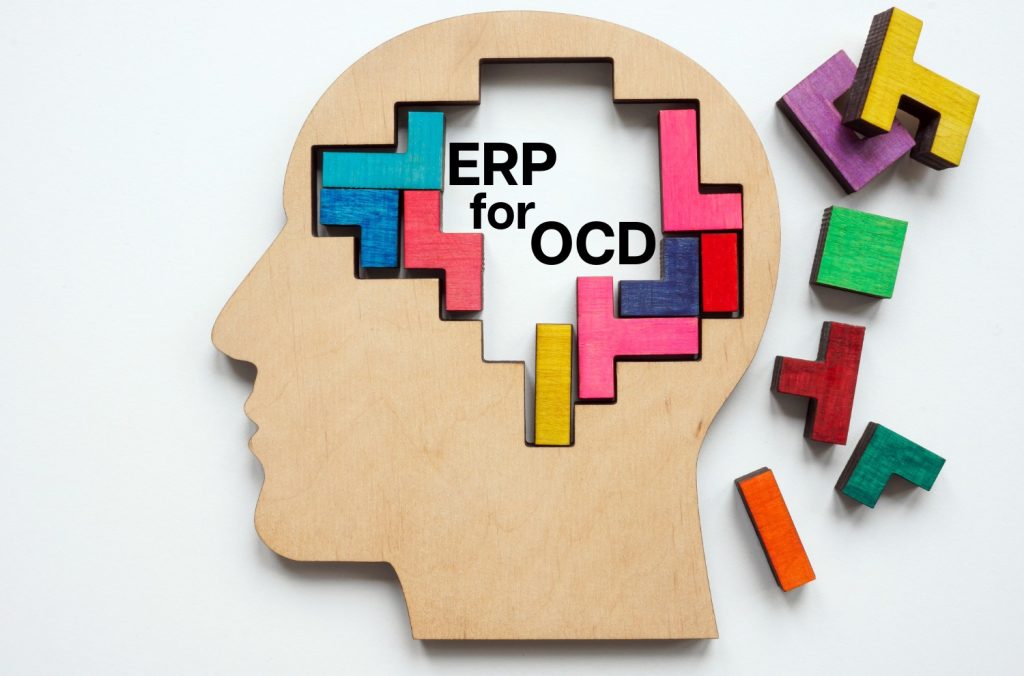Exposure and Response Prevention (ERP) for OCD

The gold-standard, evidence-based treatment for obsessive-compulsive symptoms
Understanding OCD and how ERP can help
Obsessive-Compulsive Disorder (OCD) is a common but often misunderstood mental health condition. It involves obsessions—unwanted, intrusive thoughts, images, or urges—and compulsions—repetitive behaviors or mental acts performed to reduce distress or prevent feared outcomes. These symptoms can consume hours each day and interfere with school, work, and relationships.
While OCD was once considered difficult to treat, advances in therapy have changed that outlook. Exposure and Response Prevention (ERP), a specialized form of Cognitive Behavioral Therapy (CBT), is widely recognized as the gold-standard approach, backed by decades of research and strong treatment outcomes.
What is ERP?
ERP works by breaking the cycle of obsessions and compulsions through two key steps:
- Exposure: Gradually and intentionally facing situations, thoughts, or images that trigger anxiety or discomfort. Exposures may be in vivo (real-life, such as touching a doorknob perceived as “dirty”) or imaginal exposure (mentally picturing a feared scenario, such as “maybe I’ll harm someone”). Exposures are planned collaboratively, starting with manageable challenges and progressing over time.
- Response Prevention: Learning to resist the urge to perform rituals or avoidance behaviors during and after exposure. Over repeated practice, this retrains the brain to tolerate uncertainty and reduces the distress linked to intrusive thoughts.
By combining these steps, ERP helps reduce anxiety’s intensity, weakens the brain’s “false alarm” signals, and builds lasting coping skills.

Who can benefit from ERP at MPG
We work with children, teens, and adults with OCD or related conditions. ERP can help address:
- Contamination fears and excessive cleaning
- Repetitive checking behaviors
- Symmetry and ordering compulsions
- Distressing intrusive thoughts and mental rituals
- Religious or moral obsessions (scrupulosity)
- Relationship-related obsessions (ROCD)
- Intrusive taboo thoughts (e.g., sexual, violent, or blasphemous content)
ERP principles can also be adapted for related issues such as health anxiety, panic disorder, and specific phobias.
What to expect in treatment
ERP begins with a comprehensive assessment to identify triggers, compulsions, and treatment goals. Together, you and your therapist will create a personalized exposure plan, working at a pace that feels safe and manageable. Sessions are supportive, skills-focused, and designed to help you practice both in the therapy setting and in real-life situations.
Treatment can take place in-office, via telehealth, or in community settings, depending on your needs.
Taking the first step
OCD is treatable and recovery is possible. With ERP, you can learn to face fears, reduce rituals, and reclaim your time and energy. Contact us today to learn more about how our clinicians can help you or your loved one build a life beyond the limitations of OCD.




